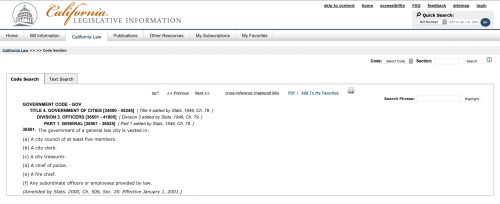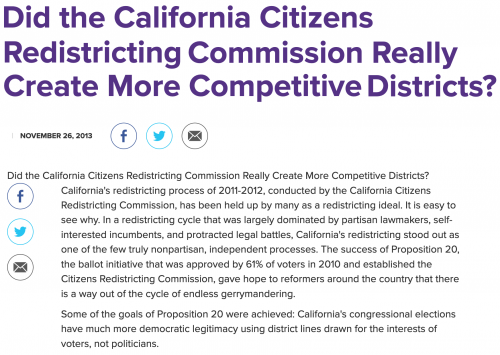
by Matt Williams
The Staff Report for the consideration of district elections omits several important considerations, which include but are not limited to the following:
.
(1) The Fiscal Impact section of the Staff Report does not include/describe the worst-case-scenario, which will happen if the City agrees to go to district elections and pay the “up to $30,000 that State law requires the City to pay to the plaintiffs’ attorney” and then gets subsequently sued for failing to make a good faith effort in the steps of the districting effort. That worst-case-scenario would not only expose the City to the costs of legal defense, but also expose the City to the possibility of fines/penalties/damages.
.
(2) The first paragraph of the Background and Analysis section does not include information about the fact that the City is not restricted to only five Council members.
.

(3) The What is the Process paragraph of the Background and Analysis section does not include information about the possibility of convening a Davis Citizens Districting Commission similar to the California Citizens Redistricting Commission.

(4) The Public Hearings 1 and 2 paragraph of the Background and Analysis section does not include any information about what factors should be taken into account in the consideration of district lines.
.
(5a) The Draft map(s) paragraph of the Background and Analysis section presumes an answer when it says “The City shall also make public the proposed sequence of elections (i.e. which districts will be elected in which general municipal election) if the councilmembers will be elected at different times to provide for staggered terms of office.”
.
(5b) The Draft map(s) paragraph of the Background and Analysis section omits a description of the possibility that all districts will be on the ballot in the first election, some for a four-year term and others for a two-year term.
.
(6) The Staff is also proposing … paragraph of the Background and Analysis section both omits and precludes the possibility of convening a Davis Citizens Districting Commission similar to the California Citizens Redistricting Commission.
.
(7) The Criteria for Districts paragraph of the Conbsiderations During the Process portion of the Background and Analysis section does not include information about the fact that the City is not restricted to only five Council members.
.
(8) The Selection of Mayor paragraph of the Conbsiderations During the Process p[ortion of the Background and Analysis section is an excellent example of how the whole Staff Report should have been written. It illuminates the universe of possibilities, as well as possible consequences.
.
(9) The Resolution provided by Staff is deficient in addressing any and all of the above eight concerns.
.
UPDATE:
.
Since I also formally submitted the points I raise in this article by e-mail to the three Staff Report authors and Mayor Lee as a formal Public Comment for Tuesday’s Council discussion, I received a speedy response from City Manager Mike Webb. I want to thank Mike for being so responsive on a Sunday afternoon.
.
We conducted a nine e-mail iterative e-mail discussion over a 3-hour time span, and Mike clarified the statutory timeline that the City is operating under, which can be assembled by an informed reader by combining the July 1, 2019 date in the Fiscal Impact paragraph on Page 1 with the “45 days to pass …” reference on Page 2. I clearly did not qualify as an informed reader when I read that, and I have apologized to Mike for not better reading the material provided. Section IV. The City’s Next Steps on pages 3 and 4 of the appendix to Matt Rexroad’s letter does put the two components together in one place; however, I also missed that specific information. Mike asked me “how could it have been any clearer, and I suggested that that it could have been clearer if the July 1st memo receipt task was included in the Proposed Timeline table on page3 of the Staff Report. I also suggested such a table update would be a great addition to the Staff report if added in the next 24 hours. That is possible because the meeting is already designated as a Special Meeting, and the Brown Act only requires 24-hour notification. Such an addition would result in a much better informed citizenry.
.
Mike indicated that the 90-day timeline after the adoption of the Resolution is extremely important, because he believes there simply isn’t enough time to select the individual members of a Davis Citizens Districting Commission and complete the CVRA-mandated steps. Looking strictly at the letter of the law, he has a point. However, I believe there may be a mutually agreeable path for solving that timeline challenge. That path is illuminated by the following language of the Rexroad letter, “If the City adopts the resolution by August 15, 2019, the City has 90 days from that date to adopt an ordinance establishing district-based elections. During that time, a prospective plaintiff is precluded from initiating a CVRA action.”
.
That language appears to leave some discretion (perhaps considerable discretion) with the Rexroad and the prospective plaintiff to effectively (de facto as opposed to de jure) extend the 90-day period. I believe it would be worthwhile to explore such a good faith extension in order to allow sufficient time to conduct the process with a citizens commission rather than with the very people who are seeking reelection … which achieves democratic legitimacy using district lines drawn for the interests of voters, not politicians.
.
If I were the City, I would be reaching out to Matt Rexroad early on Monday morning to get a sense of how important having districts drawn by the voters is to his clients. If it is important, then he can give the City appropriate legal assurances that the de-jure 90-day window where a prospective plaintiff is precluded from initiating a CVRA action will become a de-facto 180-day window. If all parties agree to that, then the voters of Davis will get a chance to have their cake and eat it too.
Matt:
Pt 1: Agreed… posted basically the same at least a couple of times.
Pt 2: Agreed, to a point… that has fiscal costs, maybe as much as $30,000 (per year)[direct and indirect costs], to add two members… there is also the time element as far as having the process to change the Muni Code, with all the “appropriate public input”… that might take a ‘citizens committee’ all by itself, and a possible referendum to challenge a decision to increase CC membership…
The fiscal costs will include an on-going cost for ballot types, and even more confusion, problems at polling places due to folk moving within the City… won’t be pretty… we already have that problem with Co Supervisor district boundaries… to mitigate that we should insist on all-mail elections… that would take poll-workers out of the ‘direct line of fire’ from voters. You do not address the fiscal implications, just as you have criticized staff for not doing that… just saying…
Pt 3: Agree they should have mentioned it, but both fiscal and timing costs, plus how much real benefit (as opposed the theoretical/philosophical) that would have, if the 5 ex. CC got to choose the ‘commission’, that would be rife for problems… if a commission was done, a fair/representative way would be to choose them as juries are chosen… not by application/appointment, but random… commissioners tend to be appointed (or re-appointment), not on interest or skills, but on affinity with the appointers… I know of some City commissioners who were originally appointed by interest/creds, but then wouldn’t get re-appointed by those who did not ‘toe-the-line’ of CC members, due to their views… maybe you know of some who fit that category… hardly, ‘representative of the community’. Tends to ‘shut out’ minority and/or dissenting views… inconsistent with the stated goals/benefits of the push for district elections.
Pt 4: Agreed. Not sure the ‘citizen commissions’ you espouse would help with that… might retard.
Pt 5 a-b: Agreed… but if there are commissions, rest assured they’d want to weigh in. No way staff could have a recommendation… too many “ifs”, assumptions…
Pt 6: See above.
Pt 7: See above.
Pt 8: See above, and “duh”.
I appreciate the review, but I’m not sure I’d characterize the listed items as “deficiencies”—certainly not “major” deficiencies.
(1) Litigation is always a possibility. But if the Council follows the process and timelines required by the CVRA, and as described in the staff report and resolution, litigation would be a remote possibility unless the Council acts arbitrarily and capriciously. Failure to address this is hardly a deficiency.
(2) Increasing or decreasing the number of Councilmembers may be worth considering, but is beyond the scope of the current issue: transitioning from at-large to district elections. Other ancillary issues, such as selection of a mayor, are necessary components of the issue.
(3) Establishment of a redistricting commission is not required and would not likely be feasible within the required timelines.
(4) Factors to be considered in establishing districts are addressed in the staff report.
(5a) and (5b) I don’t disagree that discussion of these topics could have gone into more detail.
(6) and (7) — See above.
Eric,
I agree with you on (1).
I respectfully disagree with you on (2). The number of districts may have direct bearing on the City’s ability to achieve a more optimal representation outcome. There will always be a tradeoff of Council decision-making efficiency (with more members meaning more desire for “air time” on the part of the members) with representativeness. With seven districts I believe it will be easier to provide improved representation for the socio-economically disadvantaged than with five districts, but I defer to the demographic professionals for guidance on that. However, unilaterally eliminating that possibility seems to be going down the road of exclusion rather than inclusion, and that I’m not comfortable with.
Regarding (3), I would call you to the following language of the Rexroad letter, “If the City adopts the resolution by August 15, 2019, the City has 90 days from that date to adopt an ordinance establishing district-based elections. During that time, a prospective plaintiff is precluded from initiating a CVRA action.”
That language appears to leave some discretion (perhaps considerable discretion) with the Rexroad and the prospective plaintiff to effectively (de facto as opposed to de jure) extend the 90-day period. I believe it would be worthwhile to explore such a good faith extension in order to allow sufficient time to conduct the process with a citizens commission rather than with the very people who are seeking reelection … which achieves democratic legitimacy using district lines drawn for the interests of voters, not politicians.
Regarding (4) (6) and (7) we will have to agree to disagree. I see the Staff Report as both an education document for the resident/voters, as well as an information document for the Council members. What I don’t see is the harm that you feel will come to the City and its residents if the Staff Report diligently does its best to disclose the known factors. We will never know all the factors, but disclosing to the public the ones we know, does seem to be more than appropriate. Your comments appear to be arguing that when it comes to communication with (and education of) the public, you believe that less is more in this situation and I believe that more is more.
Just to clarify, I didn’t disagree with you on 5a and 5b.
Eric, I misread your first comment about (5a) and (5b) and have modified my comment accordingly. Thank you for clarifying.
Eric, my thoughts on your 2:34pm comment … Matt does not live within the corporate limits of Davis … he speaks much truth, in spite of that. I have already said my piece on his points, nothing redacted, but I respect Matt [consider myself a friend] but we have been known to disagree on specifics, as I did above…
Gives us (all three) an excuse to share coffee, etc., as we share our disparate views … perhaps you’d enjoy getting together over coffee, some breakfast food, sometime? You, Matt, and I? No pressure to come to common views, (Matt and I have done so ~50% of the time, not much more), but to honestly discuss under “the cone of silence” … where we can freely express, but what is said over coffee (or, tea) stays over coffee/tea. The Vanguard frequently is not a great place for honest, forthright, exchange of views… too many ‘snipers’ or trolls…
I give you, via David , here and now, access to my e-mail address… feel free to contact, but not share…
This is an important topic… best not left to electeds, nor those appointed by electeds, IMHO…
We may not agree, but we’re appearing to be rational …